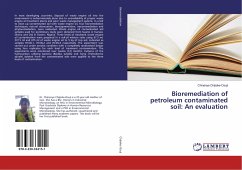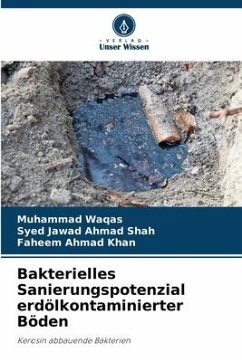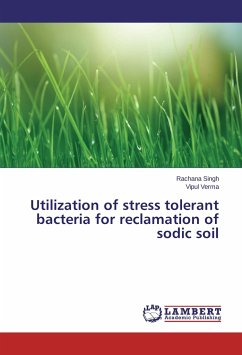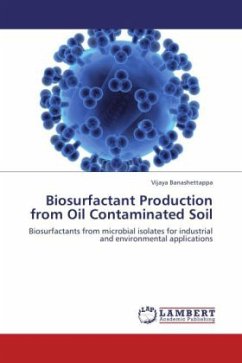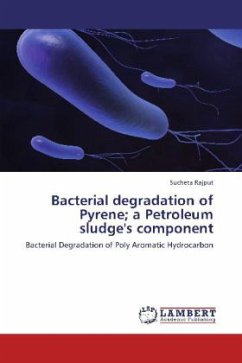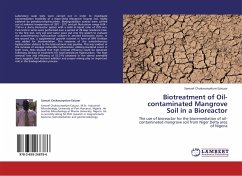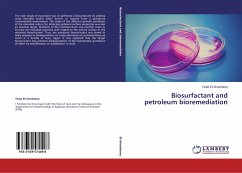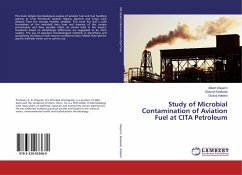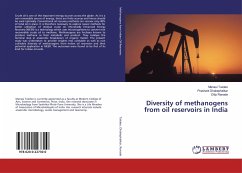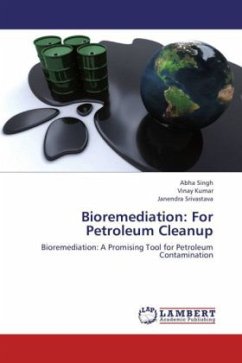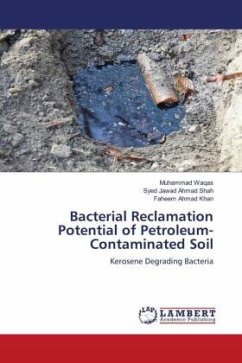
Bacterial Reclamation Potential of Petroleum-Contaminated Soil
Kerosene Degrading Bacteria
Versandkostenfrei!
Versandfertig in 6-10 Tagen
29,99 €
inkl. MwSt.

PAYBACK Punkte
15 °P sammeln!
Crude oil is composed of several compounds, such as aliphatic, aromatic and polyaromatic hydrocarbons (PAH), and also sulfur, oxygen, and nitrogen-containing compounds. PAH compounds are toxic and can be carcinogenic. Oil waste management in oil refineries needs to be focused on diminishing waste and selecting suitable strategies in order to prevent soil damage for raising crops and other agricultural purposes. In this study, several bacterial isolates were collected from PAH contaminated soil and were cultured in the presence of kerosene, diesel and petrol. Only two bacterial sp. Rhodococcus ...
Crude oil is composed of several compounds, such as aliphatic, aromatic and polyaromatic hydrocarbons (PAH), and also sulfur, oxygen, and nitrogen-containing compounds. PAH compounds are toxic and can be carcinogenic. Oil waste management in oil refineries needs to be focused on diminishing waste and selecting suitable strategies in order to prevent soil damage for raising crops and other agricultural purposes. In this study, several bacterial isolates were collected from PAH contaminated soil and were cultured in the presence of kerosene, diesel and petrol. Only two bacterial sp. Rhodococcus and Staph aureus degraded kerosene and may be used to reclaim oil spills for agricultural soils.



